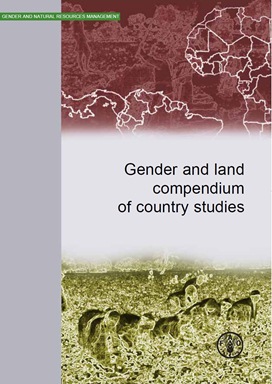Resource information
Hunger and poverty are, in general, consequences of inadequate and restricted access to land and other resources, such as capital, inputs and technology; being women among those with less access to land, while accounting for a large share in small-scale food production.
Over the past few decades, governments and civil society have been attempting to implement land regulations that seek to improve women’s land rights. Nevertheless, most initiatives developed to promote land reform programmes continue to underestimate the implications that gender asymmetric land policies entail for agriculture and food security. Most modern institutional arrangements for land tenure tend to maintain existing gender and social inequities. Political changes are required to revisit existing institutional mechanisms to ensure that rights to land are acknowledged as basic human rights and that women’s equal rights are effectively incorporated into land policy and tenure programmes. This compendium has been put together to provide an improved understanding of the complex issues concerning gender and land. It draws on research commissioned by FAO, and has been compiled by the Gender and Development Service in collaboration with the Land Tenure Service.
You can download this publication from the FAO website.

